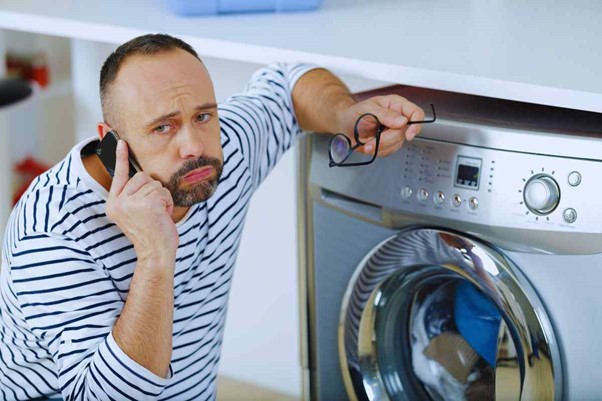
The Ultimate Guide to Appliance Maintenance: Increase Efficiency and Longevity
Home appliances are vital to our everyday lives, providing convenience and comfort. However, like all machines, they require regular upkeep to ensure optimal performance and a longer lifespan. In this guide, we’ll delve into appliance maintenance and appliance repair, offering tips to boost the efficiency of your household devices and help you avoid costly breakdowns.
Maintaining your home appliances is the key to enhancing their efficiency and extending their life. While appliances are built to last, neglecting regular maintenance can lead to poor performance, higher energy bills, and frequent appliance repair needs. Let’s explore some practical appliance maintenance tips and how you can avoid costly repairs.
Why Regular Appliance Maintenance Matters
Many homeowners overlook the importance of maintaining their appliances. By scheduling routine checks and servicing, you not only prevent sudden failures but also improve energy efficiency, saving on electricity bills.
For instance, a poorly maintained refrigerator or washing machine consumes more power due to worn-out components. When parts start malfunctioning, they need to work harder to deliver the same results, leading to increased energy consumption.
Regular maintenance also reduces the chances of needing appliance repair. By catching problems early, you avoid more extensive, expensive damage later on.
Top Maintenance Tips for Major Appliances
Each appliance in your home has unique maintenance requirements. Here’s a breakdown of essential maintenance tips for some of the most common household appliances.
1. Refrigerator Maintenance
- Clean the Coils: Dirty condenser coils force your refrigerator to use more energy. Clean them at least twice a year.
- Check the Door Seals: Damaged or loose seals allow cool air to escape, causing the fridge to work harder. Replace any worn-out seals.
- Defrost Regularly: If your fridge doesn’t have an automatic defrost option, make sure to defrost it manually to prevent ice buildup.
- Temperature Check: Keep the temperature at an optimal level—around 37°F for the fridge and 0°F for the freezer.
2. Washing Machine Maintenance
- Inspect Hoses: Look for cracks, leaks, or blockages in the hoses. Replace old hoses every five years to prevent leaks.
- Use the Right Detergent: Overuse of detergent can create buildup and stress the machine. Always follow the manufacturer’s instructions.
- Balance the Load: Overloading your washer not only compromises its efficiency but also increases wear and tear.
- Clean the Drum: Wipe down the interior drum every month to remove detergent residue, dirt, and mildew.
3. Dishwasher Maintenance
- Clean the Filter: A clogged filter reduces cleaning efficiency and strains the motor. Clean the filter at least once a month.
- Inspect the Spray Arms: Check the spray arms for blockages. If they’re clogged, clean them to ensure proper water flow.
- Use Vinegar: Run an empty cycle with a cup of vinegar every month to eliminate grease and odors.
4. Oven and Stove Maintenance
- Clean Spills Promptly: Spills and grease buildup can impact the efficiency of your stove burners and oven. Clean them regularly to maintain performance.
- Check the Oven Door Seal: A faulty seal leads to heat loss, causing the oven to work harder and consume more energy.
- Calibrate the Temperature: If your oven’s temperature seems off, recalibrate it to ensure accurate cooking times.
The Role of Appliance Repair in Maintaining Longevity
Even with proper maintenance, appliances can sometimes develop issues. The key to extending their life is recognizing when to seek professional appliance repair services.
For example, if your refrigerator starts making unusual noises or your dishwasher is leaking, it’s best to contact a repair professional immediately. Ignoring these problems can escalate the damage and lead to more expensive repairs or replacements.
Many appliance repair companies offer preventative maintenance plans. These services allow technicians to inspect and tune up your appliances, preventing potential breakdowns.
Energy Efficiency Through Proper Appliance Care
Well-maintained appliances not only last longer but also run more efficiently. Energy-efficient appliances consume less electricity, reduce your carbon footprint, and lower your energy bills.
For example, regular maintenance, such as cleaning air filters in dryers or vacuuming refrigerator coils, can significantly reduce energy consumption. Moreover, timely appliance repair ensures components are functioning at their best, preventing energy waste.
DIY vs. Professional Appliance Maintenance and Repair
While some tasks, such as cleaning filters or checking hoses, are easy to handle on your own, others require the expertise of an appliance repair technician. Knowing when to DIY and when to call a professional can save you both time and money.
Tasks like replacing refrigerator seals or fixing oven burners are best left to professionals, as improper repairs can cause further damage. Regular maintenance, however, is something every homeowner can handle with the right knowledge.
Final Thoughts
Maintaining your appliances doesn’t have to be complicated. A little routine care goes a long way in improving efficiency and extending their lifespan. Combine consistent appliance maintenance with timely appliance repair to save money, reduce energy consumption, and get the most out of your appliances, you need to balance regular maintenance with timely appliance repair. Establish a routine for checking your devices, keep an eye out for signs of wear and tear, and never hesitate to call in the professionals when needed. This proactive approach will ensure your appliances run efficiently, saving you money and extending their lifespan.
